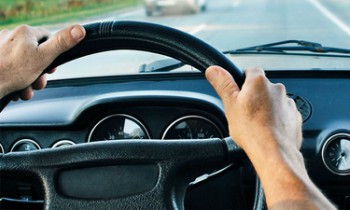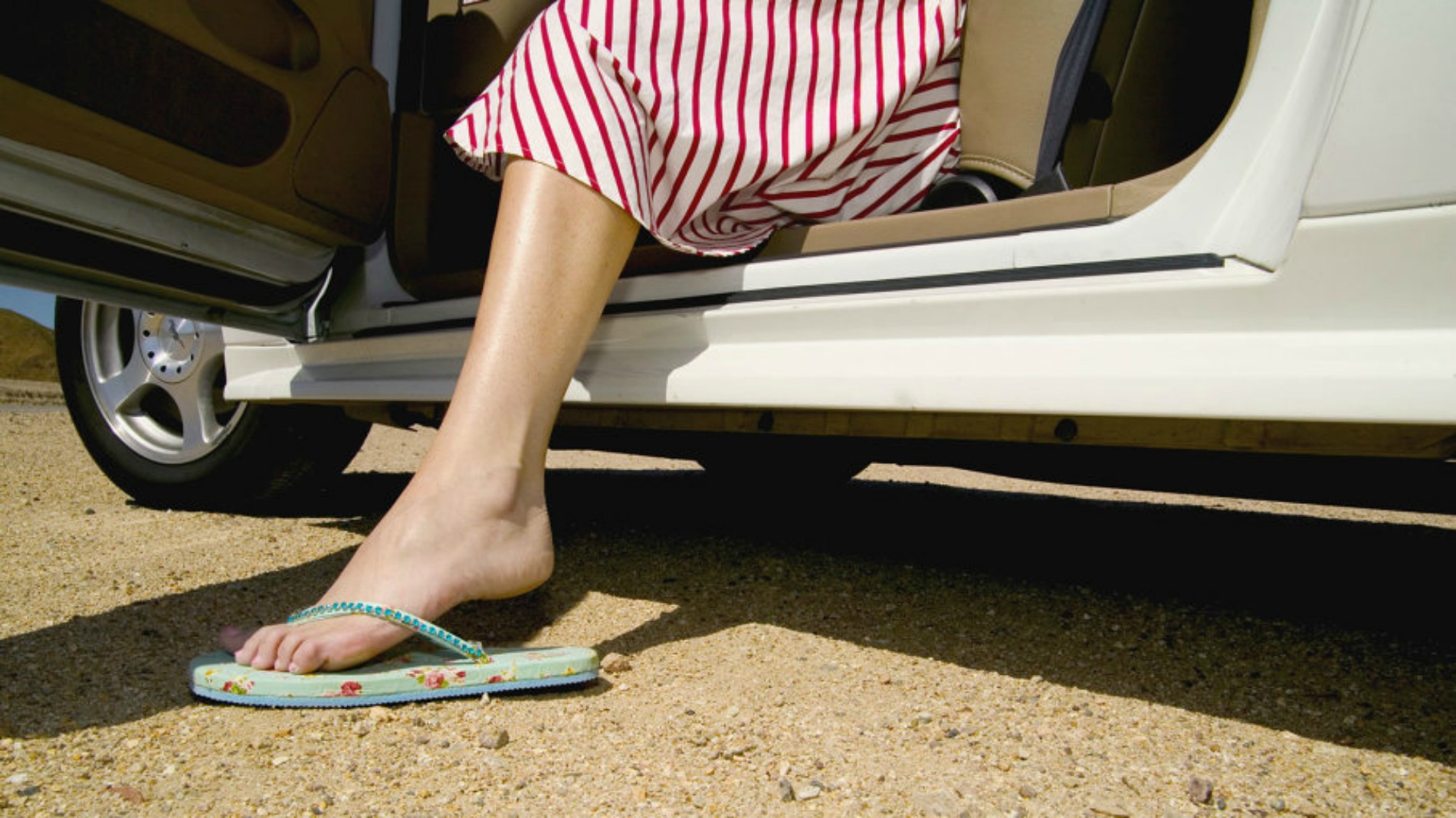It’s unclear in the UK if it is legal to drive barefooted or wearing flip flops/sandals – what is fact and what is fiction? We go into detail about what is and isn’t the perfect example of the correct driving shoes and how they may affect your insurance or land you in trouble with the police.
Is it illegal to drive with incorrect shoes? Although many compelling points have been addressed about this topic, none of them is theoretically true. The official law is that “it is not illegal to drive in the UK without shoes on and the same applies to wearing flip-flops”. However, there is more to this than meets the eye.
You can drive barefooted or while wearing flip flops with the understanding that you are able to operate the controls safely. Nevertheless, this does not make it right. What the real turning factor is if you’re putting yourself or other drivers in danger. Whilst no law explicitly states you cannot drive barefooted, it may fall under the 1998 Road Traffic Act, as “driving without due care and attention” is a minor offence.
However, some insurance companies have stated that by wearing flip-flops or any other incorrect footwear, may result in invalidation of your motor insurance. Therefore, we advise you to check your insurance policy before deciding on what footwear you drive in.
What are the consequences of not driving with the correct driving shoes? If you have been stopped by the police for driving without due care or attention, and you have been found to be driving without shoes on or incorrect footwear, the police in fact have the right to suggest that this implicated your driving ability and the possibility would still remain that it could increase the severity of the offence.
You can drive barefooted or while wearing flip flops with the understanding that you are able to operate the controls safely. Nevertheless, this does not make it right. What the real turning factor is if you’re putting yourself or other drivers in danger. Whilst no law explicitly states you cannot drive barefooted, it may fall under the 1998 Road Traffic Act, as “driving without due care and attention” is a minor offence.
However, some insurance companies have stated that by wearing flip-flops or any other incorrect footwear, may result in invalidation of your motor insurance. Therefore, we advise you to check your insurance policy before deciding on what footwear you drive in.
What are the consequences of not driving with the correct driving shoes? If you have been stopped by the police for driving without due care or attention, and you have been found to be driving without shoes on or incorrect footwear, the police in fact have the right to suggest that this implicated your driving ability and the possibility would still remain that it could increase the severity of the offence.
 If you plead guilty to any minor driving offence, this can result with a £100 fine and points on your license – or if you decide to take any educational training offered by the police, you can just take the fine. Whereas, if you were to plead not guilty, this can then result with a summons at a Magistrates court of a less severe offence like a warning; again, this depends on the severity of the incident.
If you plead guilty to any minor driving offence, this can result with a £100 fine and points on your license – or if you decide to take any educational training offered by the police, you can just take the fine. Whereas, if you were to plead not guilty, this can then result with a summons at a Magistrates court of a less severe offence like a warning; again, this depends on the severity of the incident.What did the DSA have to say about the correct driving shoes? According to the Driving Standards Agency (DSA): “suitable shoes are particularly important behind the wheel. We would not recommend driving barefoot because you don’t have the same braking force with bare feet as you do with shoes on.”
What are the correct driving shoes?
However, there may be strict guidelines to abide by when choosing the correct driving shoes – this doesn’t stop people from choosing their favourite pair of heels or their work boots. But, you must think, you wouldn’t go for your daily run or workout in high heels or a pair of flip flops – so why trust yourself behind the wheel with them?
From research, it has shown from a price comparison website…
To conclude, we hope you take into consideration if you are wearing the correct driving shoes and the implications of not doing so.
For more CarCliq guides click here
Find out how you can lower your insurance premium here
- The sole cannot be thicker than 10mm
- The sole also cannot be too thin/soft
- Your footwear must provide a sufficient amount of grip; therefore, your foot won’t slip off the pedals
- Don’t wear heavy shoes
- Don’t limit your ankle movement
- Be narrow enough to avoid accidentally depressing two pedals at once
However, there may be strict guidelines to abide by when choosing the correct driving shoes – this doesn’t stop people from choosing their favourite pair of heels or their work boots. But, you must think, you wouldn’t go for your daily run or workout in high heels or a pair of flip flops – so why trust yourself behind the wheel with them?
From research, it has shown from a price comparison website…
- 40% of women wear high heels when commuting, while 39% wear flip-flops and 24% go barefoot.
- 27% of men admitted to driving in flip-flops and 22% wear absolutely nothing on their feet either.
To conclude, we hope you take into consideration if you are wearing the correct driving shoes and the implications of not doing so.
For more CarCliq guides click here
Find out how you can lower your insurance premium here
